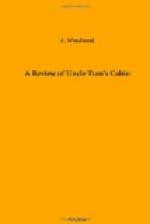It behoves us to inquire in what, this ungodly procedure, on the part of professors of the Christian religion, originates. It originates in an undue desire on the part of ministers and church members to strengthen their party. It is the same spirit that actuated the Pharisees of old, when our Saviour told them, “ye compass sea and land to make a proselyte;” and what then, after they had succeeded, why he is then “seven-fold more a child of hell than yourselves.” No wonder, nothing else can be expected, when people are induced to attach themselves to churches from such impure motives. I never yet saw such extra efforts made to get some poor, indigent, ignorant, insignificant individual into a church. But if the man has wealth or influence we generally find all hands at the bellows.
There are a class of religionists in the world, and there are more or less of them among all denominations of Christians, who are never easy, never satisfied, never content, unless they are cramming their own peculiar notions down other people’s throats. Their object is not to change men’s hearts, but to change their opinions. They take up the New Testament and read Christ’s sermon on the Mount; but they find nothing in it to answer their purpose. It is but an ordinary production in their estimation. They pass on through Matthew, Mark, Luke and John. How stale, how dull, how uninteresting these gospels, they are led to exclaim. They see but little beauty in the God-like teaching; or the inimitable example of Christ. His last agonies, his death on the cross is insufficient to move their callous hearts. But on they pass through the Acts of the Apostles, and the Epistle to the Romans; but, oh! stop, they have found it at last? Reader, what do you suppose that they have found? What were they in search of? Why some text of Scripture which seem to support their own peculiar notions on the subject of Baptism, Election, Predestination, the Final Perseverance of the saints, &c. The zeal of such persons to propagate their opinions is not more remarkable than the confident, dogmatic manner in which they express them. It is remarkable that professors of religion who are most ignorant and depraved, those who have embraced the grossest errors, are the most confident, arrogant and intolerant in their efforts to force their opinions on others. It may be set down as a maxim, that where there is most ignorance and error—that those whose creeds contain the least truth, are under all circumstances the most forward to engage in controversy with others.
Truth is quiet—error is noisy and boisterous; truth is meek—error is proud and self-sufficient; truth is modest—error is bold and forward; truth is diffident—error is confident and assuming; truth is resigned to the will of God—error is self-willed. To arrive at the truth is not the design of such persons. It is not their eternal interests, nor those of their fellow creatures that stimulate them to effort. They read the Scriptures,




